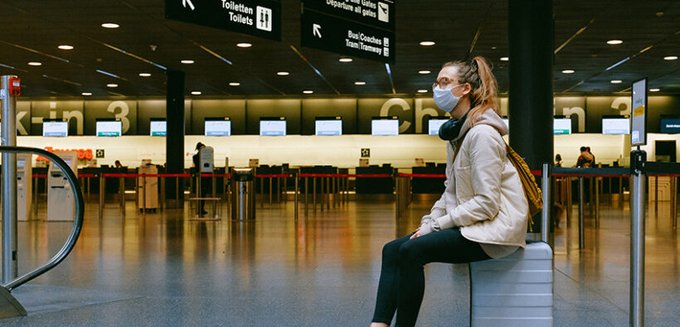European airports and the International Air Transport Association (IATA) urge EU governments like Cyprus to lift travel restrictions for fully vaccinated/recovered individuals holding a valid Covid Certificate – under the bloc’s new rules.
This new regime launched Tuesday is based on the health status of travellers rather than the epidemiological situation of their country or area of origin.
Independent research conducted in Finland and Italy provides insight into developing a Europe-wide policy for removing restrictions.
The research confirms the validity of the traveller-centric approach, highlighting the inefficiency of recent travel restrictions imposed by European countries in mitigating the risks to public health and society posed by COVID-19.
New analysis produced by Oxera and Edge Health shows that pre-departure testing requirements are likely to be ineffective at stopping or even limiting the spread of the Omicron variant.
“The analysis of testing restrictions imposed by Italy and Finland on 16 December and 28 December, respectively, on all incoming travellers made no distinguishable difference to transmission of Omicron cases in those countries.
“Conversely, the impact of these restrictions, and the limitations to the free movement of people, resulted in significant and unnecessary economic hardship – not just for the travel and tourism sectors and their workforce, but for the whole European economy,” ACI Europe, IATA said.
Crucially, the report also shows that:
- Maintaining pre-departure testing requirements for vaccinated/recovered travellers will have no impact whatsoever on the future spread of the Omicron variant in Italy and Finland.
- Imposing these restrictions earlier – i.e. on the very day the Omicron variant was identified as an issue by the WHO – would not have stopped its spread nor significantly limited it in Italy and Finland.
“This is inherent to the fact that variants circulate well ahead of the time by which they are identified, which is the reason why both the WHO and ECDC generally consider travel restrictions to be ineffective.”
Italy
While Finland has lifted restrictions for all incoming vaccinated/recovered travellers, Italy has done so only for incoming travellers from within the EU/EEA.
“This now needs to extend to all incoming travellers, as there is no health safety benefit in delaying this step any longer,” said airports association ACI.
ACI EUROPE and IATA urge those countries which “continue to deviate” from the common EU framework to rapidly align with it.
“We call upon the Governments of Austria, Cyprus, the Czech Republic, Lithuania and Malta to address this issue as a matter of urgency and abandon unnecessary and damaging restrictions.
“There are no compelling reasons why vaccinated/recovered travellers should be subjected to a different regime whether they travel within the EU/EEA or come from other countries.
“It is now urgent that the EU Council aligns its outdated Recommendation for travel into the EU (from third countries) with the new regime for intra-EU/EEA travel that comes into force today.”
Olivier Jankovec, ACI Europe Director-General, said: “We now have further proof – travel restrictions do have a significant effect – but it’s not on public health, it’s on economic stability and livelihoods.
“The research is clear that the inevitable delay in identifying new variants means that transmission already occurs by the time travel restrictions are imposed. It’s the classic case of closing the stable door after the horse has bolted.
Conrad Clifford, IATA Deputy Director-General, said: “This latest research should give governments confidence to implement the EU recommendation in full, enabling Europe to get moving again.”










